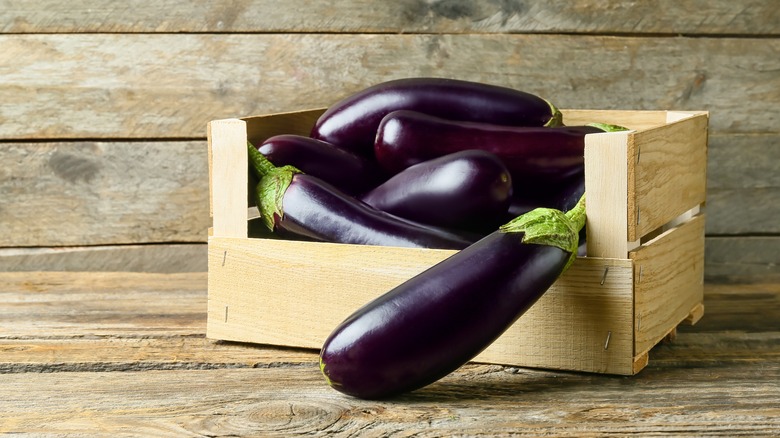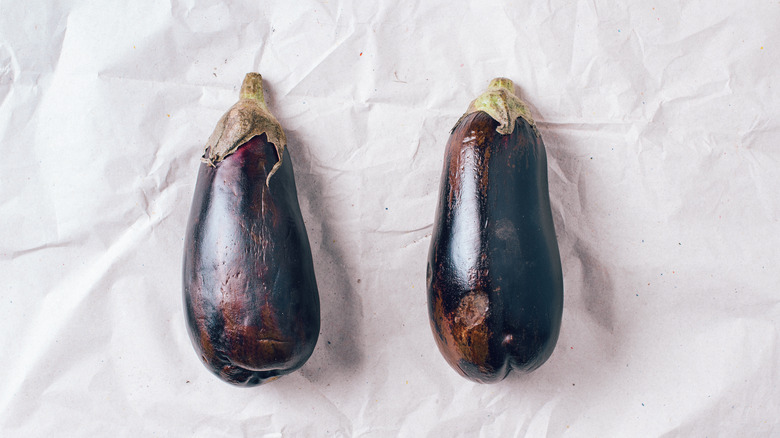Why You Should Think Twice Before Refrigerating Eggplant
With dozens of eggplant varieties and endless ways to enjoy them, determining proper storage methods is important; Failure to do so can result in aubergines prematurely wasting away before getting the chance to be braised, stuffed, blended, or layered into a cheesy parmigiana. Though storing produce in the fridge is often thought to extend shelf life, that's not always accurate. And, when it comes to eggplants, it's time to rethink how the produce is best kept.
Just one of the thousands of plants in the nightshade family, GoodRx Health explains that eggplants contain chemical compounds called alkaloids. In the case of eggplants, the most prominent alkaloid is solanine, which is known for giving the fruit (yes, eggplant is a fruit) a bitter flavor that's meant to keep pests away. And while solanine can actually be poisonous when consumed in large quantities, chances are you aren't eating eggplants by the dozen.
Enjoyed as part of a balanced diet, EatingWell shares that the long or sometimes even globular fruit is chock-full of fiber and teeming with vitamins like B6, C, and K, which can keep the body functioning in tiptop shape. However, to reap all the benefits of the aubergine, they must not spoil first.
To keep eggplants fresher for longer, forget the fridge.
Chilling can negatively impact the fruit
There are very few ways to extend the lifespan of produce that's already started to spoil. This is why buying the best quality fruits and vegetables is so important. When shopping for eggplants, beyond looking for smooth and vibrantly colored peels, SFGate recommends choosing small eggplants that are heavy for their size as this often means the flesh will be sweeter and more tender.
As for storage, you should resist the urge to chuck your produce into the refrigerator. According to the University of California, eggplants that are kept below 41 degrees Fahrenheit risk developing brassy peels, soft spots, browning (of both flesh and seeds), and even dulling of flavor. Rather than compromise taste and texture, Epicurious shares that the best storage solution is to keep aubergines somewhere with a temperature around 50 degrees Fahrenheit like on the countertop away from direct light, or even in a cellar or the garage.
Moreover, much like other produce, eggplant will ripen faster when exposed to the ethylene gas released by other ripening fruits and vegetables. To avoid accelerated spoilage, PureWow suggests storing the fruit separately from other goods. Test out this storage method and watch the lifespan of your eggplant jump from days to up to a week.

